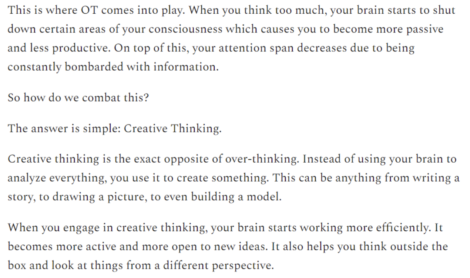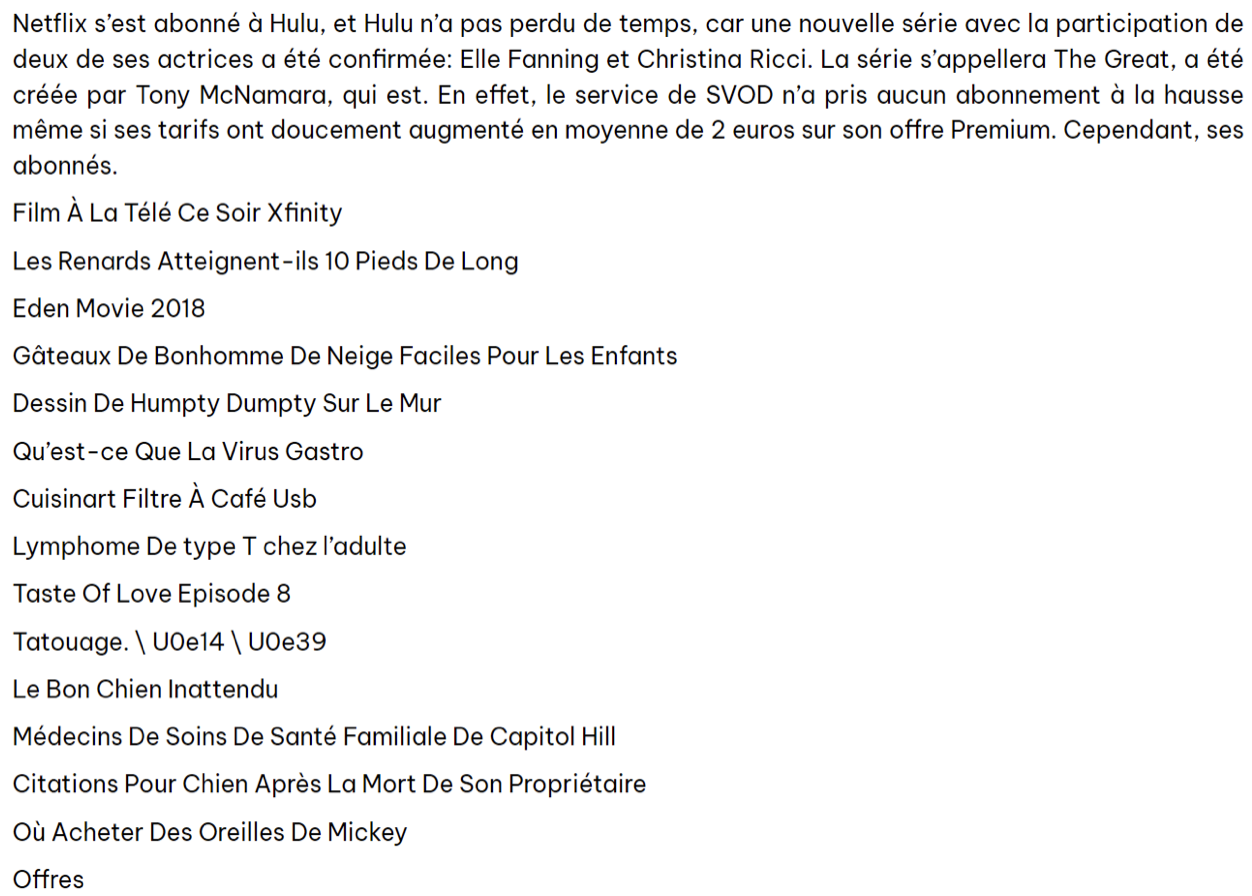This article presents a benchmark of artificial intelligence for automatic web content writing. We tested 3 writing tools: AI-Writer, Pro-Edit, and Simplified. What is the actual quality of the productions of these applications? Is it possible to do without human editors and entrust your web content to artificial intelligence? All the answers to these questions are to follow. We’ve even prepared a comparison table to see everything at a glance. As you will see, the creative power of humans is far from being replaced.
If you only have 30 seconds
- AI-Writer and Simplified monthly subscriptions propose an average of 2,181.2 words/$
- $0.49: that’s the average price of an article for AI-Writer’s and Pro-Editor’s premium offerings
- Pro-Redaction and Simplified have the most original paragraphs: 0% and 1.3% plagiarism compared to 18% for AI-Writer
- Simplified is a real writing assistant, and is not intended to replace 100% of web writers
- AI-Writer explains well the basic concepts brought by the title, but with an easy tendency to ramble
- Pro-Editor is interesting for snippets, but certainly not for writing a whole article
- No Freemium offer for these 3 tools, but rather trial periods before switching to a monthly or annual payment
- In the end, it is not possible to rely solely on AI tools for content creation
Summary
- Introduction
- Methodology
- Overview of the features of the three content creation tools.
- Syntax, readability, and originality: how do the automatic writers fare?
- Conclusion
Introduction
About two years ago, a blogger named Liam Porr wrote an article about creative thinking. In it, he gave his readers some advice to help them boost their productivity and stop overthinking. This article about cognitive processes was written entirely with the help of artificial intelligence.

But how does automatic content writing work? It’s straightforward. In most of the tools available on the Internet, the user simply provides a title of 100 to 200 characters to start the writing process. You wait a few minutes, and it’s ready! From a copywriting point of view, an original article with several paragraphs, and sometimes even sourced, is then displayed.

Methodology
To realize our benchmark, we based ourselves on reference articles dedicated to 3 distinct themes:
- What is content marketing?
- Netflix loses 200,000 subscribers in 3 months: what future model for the American giant?
- Crypto-currency news: week of April 18-24, 2022
Each of these topics was subjected to an editorial algorithm. We assessed the results against the original article.
To assess the results, we also subjected them to a plagiarism detector. We used Plagiarism Checker from Small SEO Tools.
Interface of “Plagiarism Checker” (Source: Small SEO Tools)
Presentation of the functionalities of the three content creation tools
Truth be told, no two automated content writing apps are alike! Each has its processes its deadlines, but also a unique offering. The main points of difference are in the form: the number of paragraphs, the inclusion of clear headings, or the parts and sub-parts retained by the AI.
1. AI-Writer
AI-Writer is undoubtedly the most accessible tool on the 3 platforms studied. Every newcomer to the website must create an account to use the writer’s services. The Lite version is valid for 7 days; it includes 12 credits for writing texts up to 500 words. The user has to fill in an article title and the desired word count, and the application takes care of the rest.

Then, above the word processing section of the “SEO-focused Editor,” we see a natural referencing score. This tells the user whether or not his article has a good keyword distribution. This is important for the positioning on the first page of Google.

The waiting time is a slight drawback of this platform since you usually have to wait between 6 and 8 minutes to access the final article. The customization options are also minimal. The word count is the only variable that the user can control. Finally, unlike the following two tools, AI-Writer is only available in English.
2. Pro-Rédaction
Upon entering the Pro-Redaction platform, the user must have a clear idea of the articles they want to create. Indeed, they will only have three credits before the trial version ends. This writing aid, only available in French, is different from AI-Writer. Instead of providing a ready-to-use article, Pro-Redaction offers the choice between 3 introductions, 3 outline proposals (more or less detailed with bullet points), and a series of 5 questions/answers to your blog readers. The delay is shorter than for AI-Writer: a maximum of 5 minutes of waiting before discovering the text.

However, the website has no customization options: you can’t choose the number of words or the type of text you want.
3. Simplified
Finally, the last platform analyzed is Simplified. Thanks to its 3 tools, “Design & Videos,” “Content Planner,” and especially “AI Writer,” it is by far the most complete website for this article. The “Lengthy form writer” tool is a real word processor. There are many customization options and more than 50 templates available to help you design your article (caption writing, text summary, Google Ads, and so on).

Here, the user is immediately offered 7-day access to the website’s premium offer to test the available features. Nearly 21 languages are available for the automatic writing! You can also choose 12 different tones (formal, comical, hypocritical, etc.)
As far as writing is concerned, the user makes his article piece by piece. It is, therefore, a less automated platform than AI-Writer and Pro-Edit. Finally, the result is delivered in a few seconds. There is no waiting period as with the other two platforms.
Content Writer Premium Offers Comparison Table
| AI-Writer | Pro-Rédaction | Simplified | |
| Price (basic offer) | 27,06 € 29 $ |
6 € 6,43 $ |
14 € 15 $ |
| Price (intermediate offer) | 55,06 € 59 $ |
14 € 15 $ |
27,99 € 30 $ |
| Price (high-end offer) | 349,93 € 375 $ |
29 € 31,08 $ |
111,98 € 120 $ |
| Number of credits (basic offer) | 40 articles 48 000 words |
10 articles | 20 000 words |
| Number of credits (intermediate offer) | 150 articles 180 000 words |
30 articles | 50 000 words |
| Number of credits (high-end offer) | 1 000 articles 1 200 000 words |
100 articles | unlimited |
| Price/credit (basic offer) | 0,73$/article 1 655 words/$ |
0,60€/article 0,64$/article |
1 333 words/$ 1 240 words/€ |
| Price/credit (intermediate offer) | 0,39$/article 3 051 words/$ |
0,47€/article 0,50$/article |
1 667 words/$ 1 550 words/€ |
| Price/credit (high-end offer) | 0,38$/article 3200 words/$ |
0,29€/article 0,31$/article |
(Sources: AI-Writer, Pro-Redaction et Simplified)
Syntax, readability, and originality: how do automatic writer’s fare?
Now let’s get to the heart of the matter: what are the articles obtained thanks to these content writers worth? Of the three tools analyzed, there are two trends.
The first one, embodied by AI-Writer and Pro-Editor, proposes a simplified experience. The user submits his article title, and the application writes it entirely on his behalf.
Simplified represents the second trend. Users have more control. They are encouraged to put together several texts generated by the website to finalize their article.
Let’s see the results of our test with these 3 tools. The articles deal with content marketing, the future of Netflix following its bad quarterly results, and the latest trends in crypto-currencies.
What you need to remember:
- AI-Writer is a tool to be favored by all our SEO-savvy readers; it is the least demanding of the three platforms studied and can therefore be a good starting point for automatic content writing
- Pro-Redaction shows some flaws in terms of cohesion, but also some qualities in the form; it can be interesting to be inspired by the layout and some turns of phrase of this tool to perfect your articles
- Simplified seems to us to be an ergonomic and complete tool, but also much more demanding than its two competitors: you have to spend more time on Simplified to complete your article. Also, be careful not to get too lost among the many features.
1. AI-Writer
To the question “What is content marketing?” the content creation tool provided 5 paragraphs explaining well the contours of this marketing branch. Beyond the simple definition given at the beginning of the text, the platform even manages to advise readers on the best practices to implement. Nonetheless, the last paragraph is a little confusing as AI seeks to delve deeper into the topic:
“This is a far cry from branded content marketing, where the main goal is to increase brand awareness and build relationships with the target audience. Consumer intent is a key component of inbound marketing, as potential customers actively seek out information about the brand. By creating and delivering content that buyers find useful, marketers build brand awareness and preference, which builds consumer trust as they move through the sales process.”
Apart from that, the syntax is good. Some sentences in the article are relevant and reusable. So be careful not to use phrases already available on the Internet! Only the writers can’t use excerpts copied from other publications. On our 3 articles, AI-Writer has an average of 18% plagiarism, according to the “Plagiarism Checker,” with a peak of 23% on the weekly crypto-currency update we requested.

(Sources: AI-Writer and Small SEO Tools)
Finally, for the two other titles dealing with Netflix’s misadventures and crypto-currencies, we note many figures for the article dealing with streaming (with sources corresponding to the targeted news fact!) and a total off-topic on the virtual currencies text. The text deals with cryptos in general without dwelling on the weekly evolution of the currency prices or even the launch of new cryptos.
2. Pro-Rédaction
Unfortunately, Pro-Redaction fell short on many essential points of web writing.
Let’s start with the most obvious: some sentences are unfinished.

In addition, other text excerpts simply don’t make sense:

Despite this, if we consider that the user comes to pick from the articles proposed by these tools, then Pro-Redaction remains an interesting platform. The plagiarism scores of the website’s articles are very low: 0% for Netflix and cryptos, and 4% for the content marketing theme. Also, the idea of 5 answers to a FAQ is very sensible, all executed straightforwardly.
Unlike AI-Writer, Pro-Redaction did pretty well with the demanding weekly point exercise for cryptos (although the values put forward were, obviously, outdated):

3. Simplified
The results of Simplified are pretty positive.
First, the speed of the AI is impressive. This is true for headline ideas, outline proposals, and the body text. Moreover, for each of our queries, the system gives us a choice between two paragraphs of different sizes.

(Source: Simplified)
Secondly, Simplified’s excellent originality scores reassure the user. He can borrow the platform’s terms with peace of mind.

(Source: Small SEO Tools)
Of course, the wide range of customization options for writing your text is enriching and appreciated.
The software has well understood the notion of a weekly “gazette,” but the selected information dates from several months ago. In terms of content, Simplified does well on all three articles. It’s (almost) perfect in form, even if the substance is sometimes left up to us (as with Pro-Redaction, there is some false data on crypto-currencies).
Nonetheless, there is also a negative to Simplified. It is pretty frustrating for the user to see that the trial version is short-lived. Also, you spend more time making the article than on the other two tools.
Although we have a lot of languages at our disposal, some formatting errors tarnish the appearance of the paragraph. The plagiarism scores also vary according to the language: for example, we reach about 10% of plagiarized text with French sections.

Finally, some sentences are sometimes incomplete, as in the case of Pro-Redaction, which forces the user to go to the second proposed paragraph version.

(Source: Simplified)
Conclusion
In short, artificial intelligence for content writing is not yet perfect. Artificial intelligence has not acquired all the subtleties of human language, and they have to make progress in gathering information on a given subject. At the moment, their primary purpose is to accompany the human writer rather than to replace them.
Posted in Misc..
